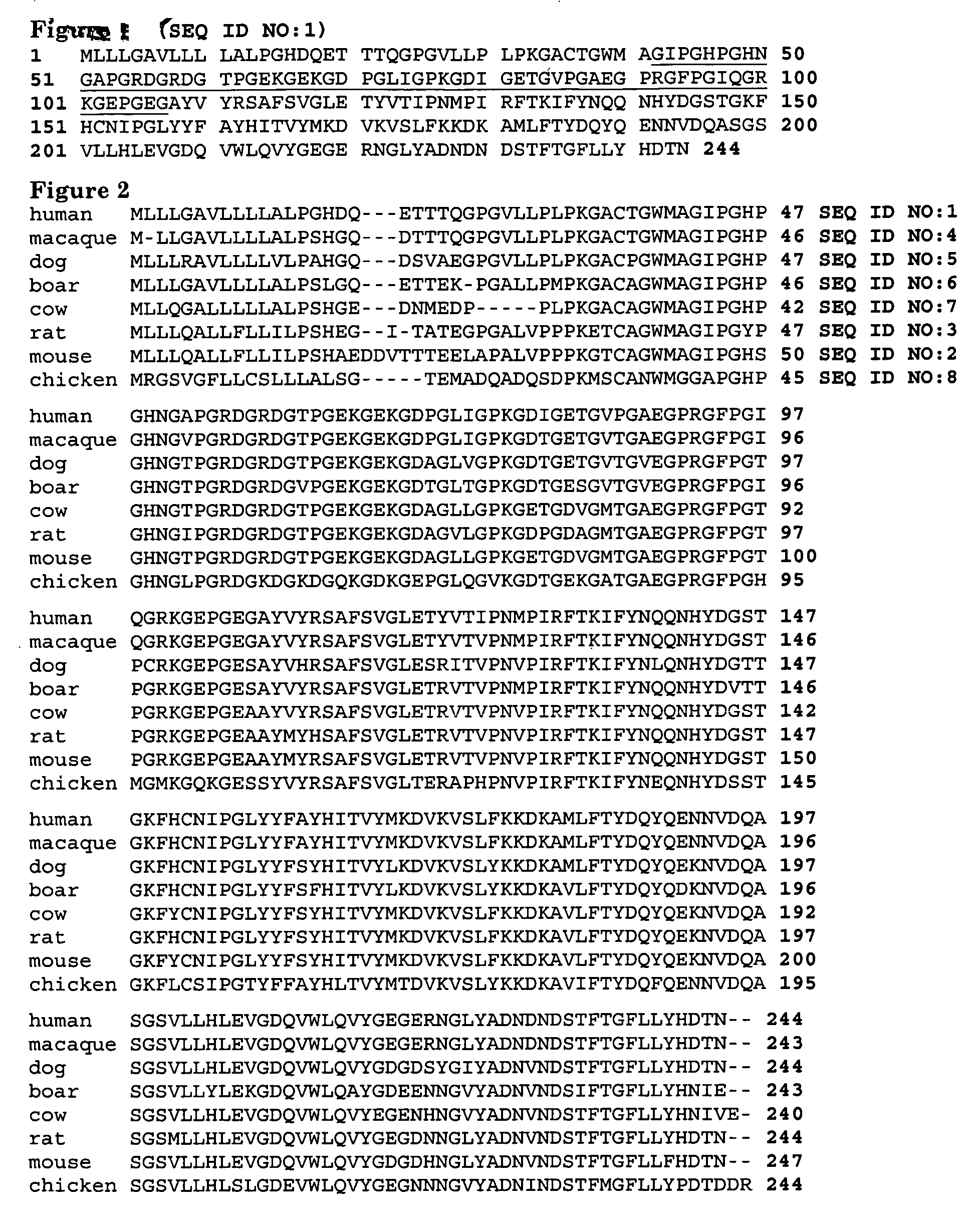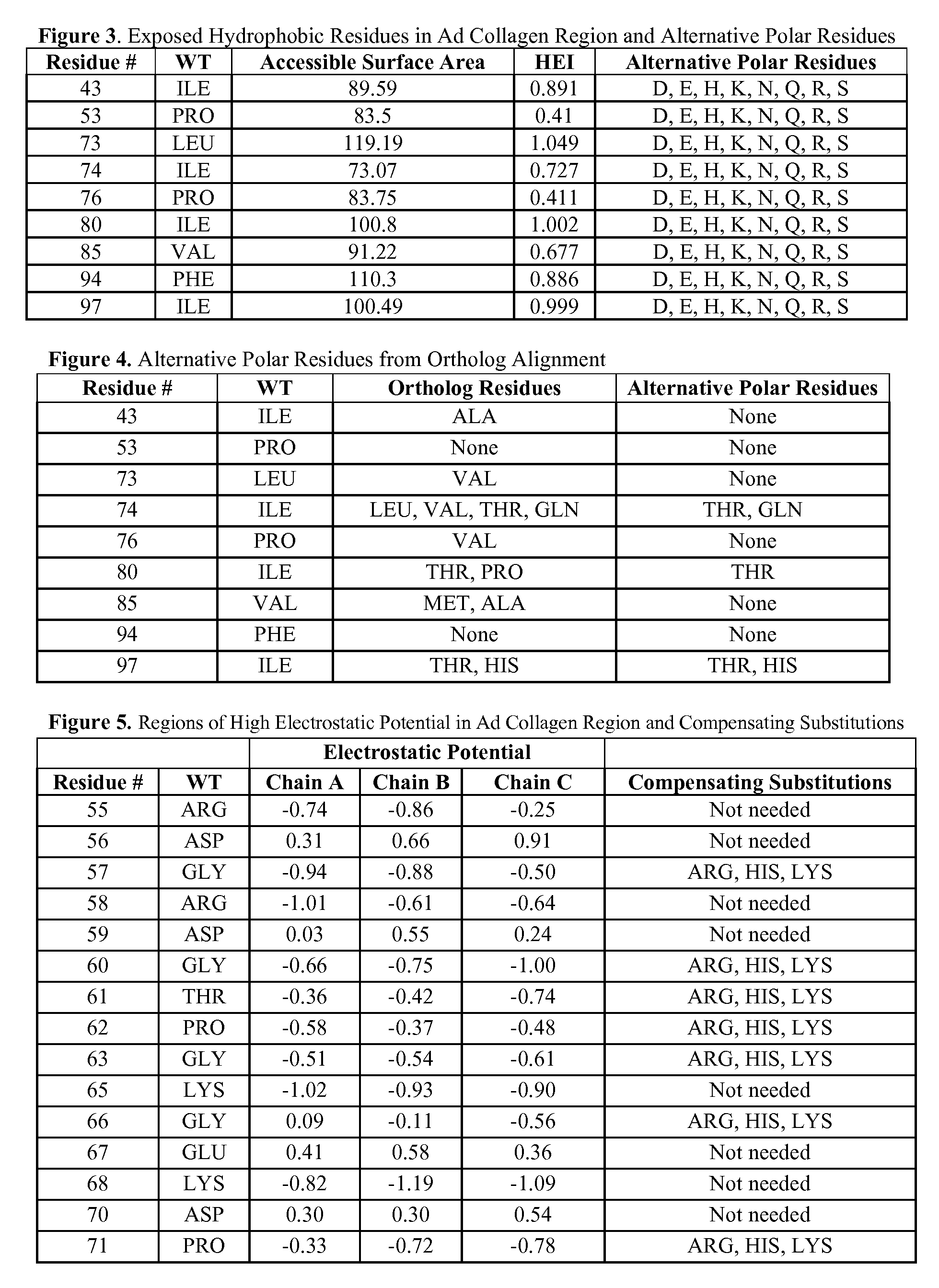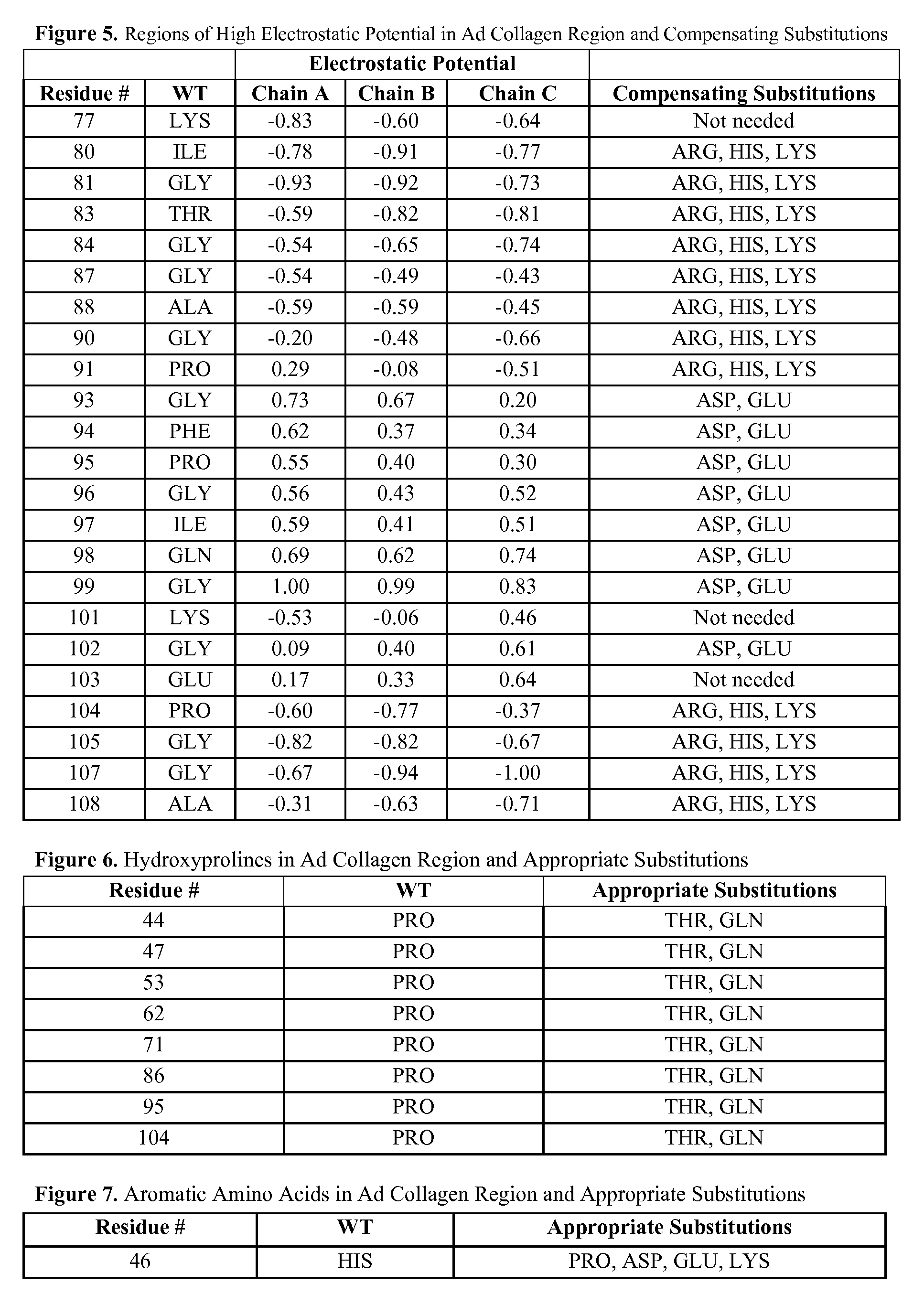Globular Adiponectin Variants
a technology of adiponectin and globular adiponectin, which is applied in the field of adiponectin, can solve the problems of insoluble adiponectin and the fragment of adiponectin of naturally occurring adiponectin in all known species, and achieve the effects of improving soluble expression, improving solubility, and increasing recombinant protein expression
- Summary
- Abstract
- Description
- Claims
- Application Information
AI Technical Summary
Benefits of technology
Problems solved by technology
Method used
Image
Examples
example 1
Homology Modeling of Adiponectin Collagen Region
[0177] The crystal structure of collagen (Protein Data Bank entry 1K6F) was used as a template to create the model of the trimeric human adiponectin collagen region required for subsequent calculations. Methods well known in the art were used to generate the human homology model.
example 2
Identification of Exposed Hydrophobic Residues in Adiponectin Collagen Region
[0178] The adiponectin collagen region structure was analyzed to identify solvent-exposed hydrophobic residues. The absolute and fractional solvent-exposed hydrophobic surface area of each residue of each chain was calculated using the method of Lee and Richards ((1971) J. Mol. Biol. 55:379-400, entirely incorporated by reference) using an add-on radius of 1.4 Å (Angstroms). The values averaged over all three chains are listed in FIG. 3.
[0179] A hydrophobicity exposure index (HEI) for each residue was calculated by multiplying the residue's fractional solvent-exposure by the Fauchere and Pliska hydrophobicity index for that amino acid residue type (Fauchere and Pliska (1983) Eur. J. Med. Chem. 18:369-75, entirely incorporated by reference) and listed in FIG. 3.
[0180] Solvent exposed hydrophobic residues in the adiponectin collagen region were defined to be hydrophobic residues with at least 50 Å2 (square...
example 3
Identification of Alternative Polar Residues Based on Adiponectin Ortholog Alignment
[0181] Orthologous adiponectin sequences from mouse (Genbank accession No. Q60994), rat (Genbank accession No. NP653345), rhesus maqaque (Genbank accession No. AAK92202), dog (Genbank accession No. NP001006645), boar (Genbank accession No. NP999535), cow (Genbank accession No. NP777167), and chicken (Genbank accession No. AAV48534) were obtained from NCBI, aligned to the human sequence (Genbank accession No. Q15848, SEQ ID NO:1) using the ClustalW algorithm (Higgins et al. (1994) Nucleic Acids Res. 22:4673-80, entirely incorporated by reference) and illustrated in FIG. 2. All alternative amino acid types present among these species at residue numbers 43-97 of FIG. 1 are listed in FIG. 4. From these, possible polar residues were identified.
PUM
| Property | Measurement | Unit |
|---|---|---|
| total concentration | aaaaa | aaaaa |
| total concentration | aaaaa | aaaaa |
| total concentration | aaaaa | aaaaa |
Abstract
Description
Claims
Application Information
 Login to View More
Login to View More - R&D
- Intellectual Property
- Life Sciences
- Materials
- Tech Scout
- Unparalleled Data Quality
- Higher Quality Content
- 60% Fewer Hallucinations
Browse by: Latest US Patents, China's latest patents, Technical Efficacy Thesaurus, Application Domain, Technology Topic, Popular Technical Reports.
© 2025 PatSnap. All rights reserved.Legal|Privacy policy|Modern Slavery Act Transparency Statement|Sitemap|About US| Contact US: help@patsnap.com



